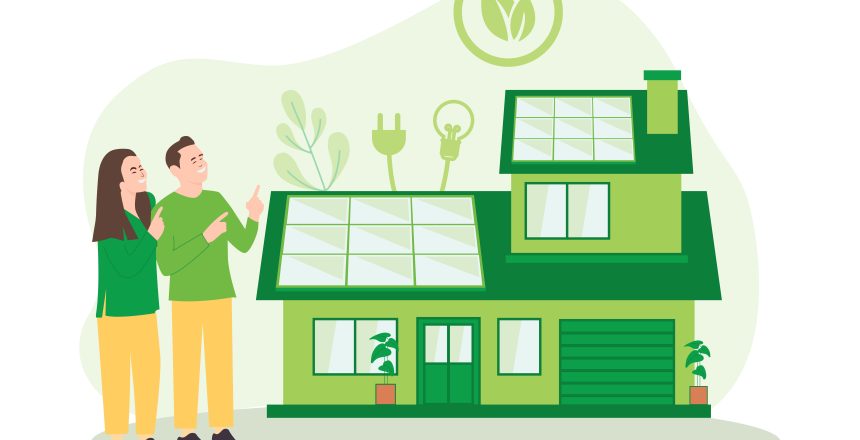If you are in the market to buy a green home, you’re in luck! Green is quickly becoming a priority when it comes to home buyers and what they want. Green living is ultimately a predominating deciding factor for those who want to buy a home, whether it’s because they want to save energy or improve indoor air quality.
Why Green Homes Are Gaining Popularity
The desire to buy a green home has been a growing trend in the housing market in the last few years, and studies have shown that at least half of those searching for a home look for eco-friendly features. With high demand come plenty of choices in green housing options. There are also risks and homework involved with finding a green home as well. The growing trend has some buyers falling victim to green washing, which is defined as the practice of marketing a product as eco-friendly when in actuality, it is not.
What is a green home?
Many home buyers want an energy-efficient home, but what does that really mean? The definition of a green home varies from each home buyer. For some, it can be as simple as energy savings, and for others, it can mean wanting a home that uses non-toxic materials. Generally speaking, a green home can be defined as a healthy and cost-efficient home that reduces energy and water usage. It is also a comfortable home that protects the environment and makes the best use of the land that is sits on.
What to look for in greenhome
Are you looking at a greenhome? Finding the answer could be more difficult than you might think if you don’t know what to look for.
Here are some things to look for in a truly green home:
- Insulation that includes windows and exterior doors with Energy Star ratings
- Nontoxic interior finishes (low VOC paint, sealants, and carpeting)
- Components made from renewable resources
- Energy efficient appliances
- Specific construction practices to minimize and recycle construction waste
- Solar panels
- Careful placement of windows to maximize interior light and ventilation
- Water-conserving irrigation system for the grounds, and landscaping that minimizes the use of water
- Zero-carbon house that achieves zero net carbon emissions from energy
The house can also be certified green by the U.S. Green Building Council, the Environmental Protection Agency, and others who rate homes. Keep in mind that buyers who plan on staying put in their home for at least ten years stand a good chance of saving money by going green.
It’s a fact that green homes have more value to them. Once you find your dream green home, check its value by using Neighborhood IQ’s free home value report online to make sure you get a good deal.

